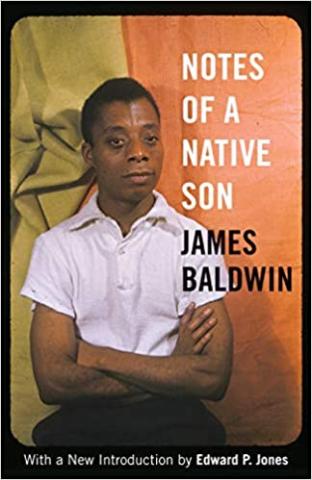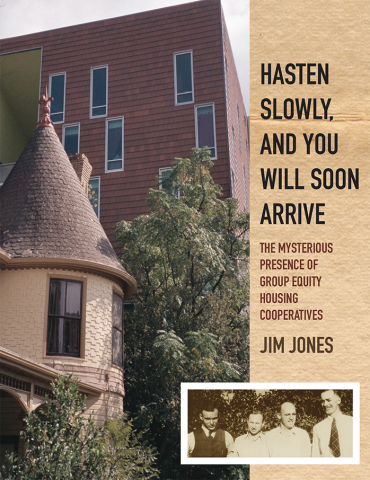- Grand Rapids Alliance of Cooperative Communities - Grand Rapids Alliance of Cooperative Communities (GRACC) is a housing co-operative open to the general public for membership. GRACC was founded in 2012 with one home in Grand Rapids and now operates four houses with 51 units. GRACC prioritizes low-income households, fosters community, and empowers individuals. GRACC is committed to improving and expanding opportunities for cooperative housing in the Greater Grand Rapids area. Learn more.
- The Woodnote - The Woodnote cooperative is a non-profit organization that aims to facilitate access to affordable, inclusive, and democratically-run housing for Concordia students, within a community-focused lifestyle. The Woodnote opened its doors just this past summer. Catch Woodnote support member Megan Quigley share more about how the Woodnote was developed on our keynote panel at NASCO Institute next month. Learn more.
Each year, NASCO hosts an annual election for the Board of Directors at-large positions. Elections are conducted for four of its 12 three-year seats. These directors will begin their terms at the Spring 2021 board meeting.
The NASCO Board of Directors has primary responsibility for steering the organization’s directions and setting policies while acting as a trustee of the organization. As such, board members do not represent individual co-ops but work toward the common needs of NASCO and member cooperatives. By nominating a candidate for the board your co-op helps to set the direction of the larger NASCO community–we need a strong board to keep NASCO responsive to the needs of the cooperative movement.
NASCO Active Members, Associate Members, and Individual Members have the opportunity to nominate people to fill the open seats on the Board of Directors.
- Individuals who fill out the survey by Sept 12 will be entered into a raffle for 1 comped registration to NASCO Institute
- Individuals who fill out the survey by Oct 12 will be entered into a raffle for a NASCO swag bag (3 total available)
Notes of a Native Son by James Baldwin
Recommended by NASCO Board Director and ICC Ann Arbor member Julia Selig
In these turbulent times marked by loss and yet full of new and rediscovered drives and passions, I have found sensible, if not outright necessary, for retrospection and, more importantly, introspection. With the blessing and the curse of an eloquence that forces its reader to listen regardless of their racial identity, James Baldwin’s first nonfiction publication Notes of a Native Son allow us to do just that.
A man fervently opposed to the construction or the view of blackness as a monolith was somehow able to accurately write about his own blackness in a way that resonates across the African Diaspora inside and outside of the United States of America. I recommend this for NASCO’s first book of the month so that we sit in the comfort and the pain to think again of the role of identities, family, race, class, responsibility, and hope to name a few. I wish that with Notes of a Native Son we discover and revisit with a more critical lens literary works and narratives that aim to speak or explain our country and our society.
Since NASCO was founded, our housing co-ops have served as spaces for organizing against oppression and violence in our communities. Right now, as people all over the US are protesting and standing up against continued violence against black people, we call on our member co-ops to uphold our tradition of solidarity in social action.
Having these communal spaces instills in us a responsibility to steward them toward work for the common good. Talk to your housemates. Talk with your community. Take what actions you can to support our black members and the black community at large.
For our non-black members who plan to take direct actions, please center the needs and safety of black protestors around you in your actions, and follow their lead. This message is especially for white members who face less risk in confronting the police or other authorities.
NASCO stands against the continued murder of black people by police and supports all efforts to end it.
Our friends at the TESA Collective put together this guide on what you can do to support protests right now. It includes:
Please join us in welcoming new members to the NASCO Board of Directors. NASCO's dedicated board members help us remain responsive to the needs of the co-op movement. During this unprecedented time, we look to our board directors to keep us grounded in the increasingly important work of our members and our larger network as we continue to provide resources, direct assistance, and connection to the North American cooperative sector.
From left to right: Hadron Chaudhary, Madeleine Durante, Caroline Elbert, Josh Graham, Alec Martinez, Julia Selig, and Lana Wong. Not pictured: Katie Isme.
Last updated: Jan 28, 2021
Housing cooperatives and our members are in a unique position during the COVID-19 outbreak to utilize the values and skillsets we've prioritized as a movement: concern for community, responsibility, mutual aid, solidarity, and organization.
NASCO is working to continue our mission to provide resources and encouragement to housing cooperatives across North America during this global crisis. We are shifting our programming to meet the situation, providing space for cooperatives to build and share action plans, and connecting co-ops to resources as needed.
NASCO is taking proactive steps to support our members and the communities that they are embedded within during the pandemic. We are continuously evaluating the situation and adjusting as needed.
See below for resources on:
- Cooperative Living
- Co-op Economic Resources & Funding
- Mutual Aid, Advocacy & Social Justice Wisdom
- Students
- Remote Work
The NASCO Board is opening applications to fill three open board seats.
Appointments are for one year terms from April 2020 to March 2021.
The board will prioritize voting on candidates who meet the skills gaps identified by our External Affairs Committee, including:
- Current members of Active Member cooperatives
- Current staff of Active Member cooperatives
- Financial experience
- Canadian cooperative members/staff
- Governance skills
- Fundraising experience
- Secretarial skills
- People from marginalized backgrounds, including but not limited to, POC, Black people, folks with disabilities, working class folks, LGBTQIA+ folks, non citizens or undocumented folks, single parents, and women
- Firm commitment to antiracism and anti-oppression
Why run for the board?
- Play a key role in a bi-national organization that develops new cooperatives, manages common equity houses, and reaches thousands of cooperators in the U.S. and Canada with cooperative education
- Network with cooperators across North America
- Share your skills with a mission-driven organization
With roots in the women's movement of the late 1800s, group equity co-ops have continued against the odds for almost 150 years, finding ways to create both affordable housing and community across North America.
Group equity co-ops are solidly rooted in the Chicago area, first rising as a practical solution to the very real needs of nineteenth-century single women. But this self-help approach eventually became an important option for anyone with financial need.
"We'll do it ourselves" became a particularly strong rallying cry during the Great Depression, when out of desperate necessity, students and others found ways to independently meet their housing and dining needs through group action. With grit and sheer determination, co-ops found ways to purchase and even build houses, harnessing both entrepreneurial skills and idealistic beliefs to begin expansion-oriented, scattered site systems from California and British Columbia to Halifax and Florida.
On Saturday, November 9, 2019 at NASCO Institute in Austin, TX, three individual cooperators and one group of cooperators were honored as inductees in the NASCO Hall of Fame. The NASCO Hall of Fame, created in 1989, provides broader recognition to individuals who have made a truly significant impact within the cooperative movement. The 2019 Inductees are:








